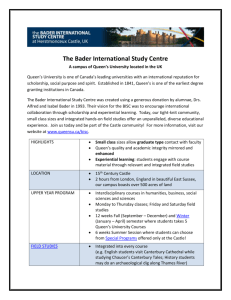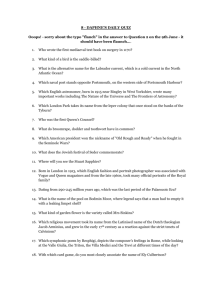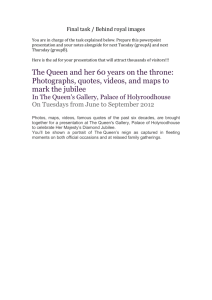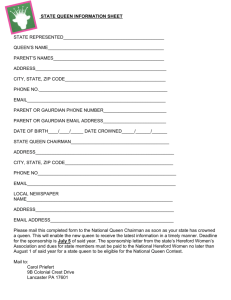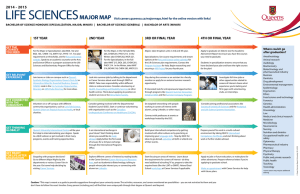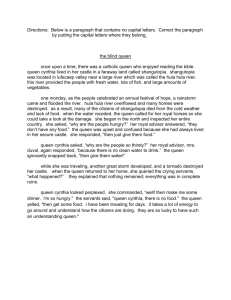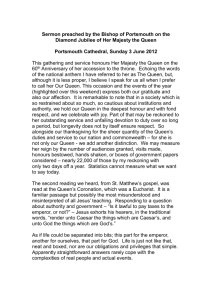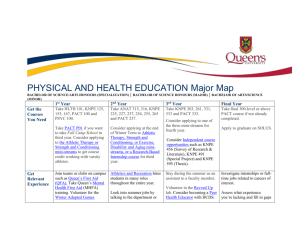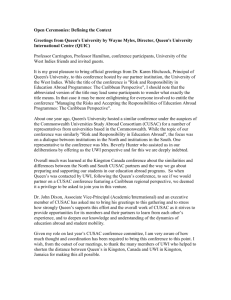Career Services- Queen`s University
advertisement
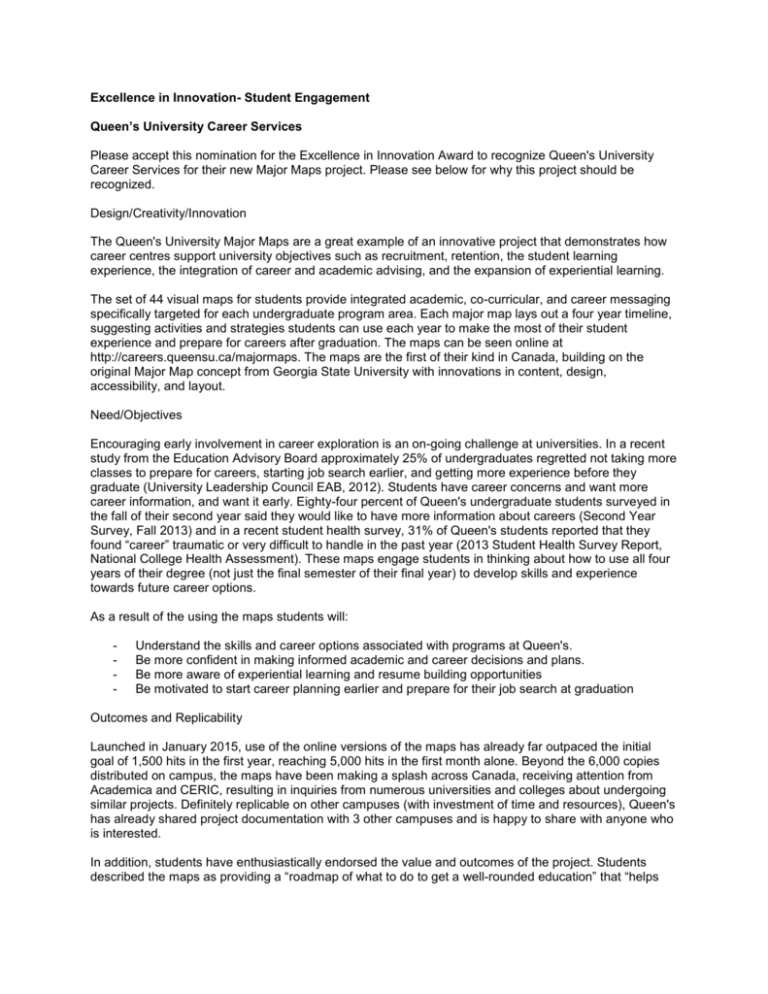
Excellence in Innovation- Student Engagement Queen’s University Career Services Please accept this nomination for the Excellence in Innovation Award to recognize Queen's University Career Services for their new Major Maps project. Please see below for why this project should be recognized. Design/Creativity/Innovation The Queen's University Major Maps are a great example of an innovative project that demonstrates how career centres support university objectives such as recruitment, retention, the student learning experience, the integration of career and academic advising, and the expansion of experiential learning. The set of 44 visual maps for students provide integrated academic, co-curricular, and career messaging specifically targeted for each undergraduate program area. Each major map lays out a four year timeline, suggesting activities and strategies students can use each year to make the most of their student experience and prepare for careers after graduation. The maps can be seen online at http://careers.queensu.ca/majormaps. The maps are the first of their kind in Canada, building on the original Major Map concept from Georgia State University with innovations in content, design, accessibility, and layout. Need/Objectives Encouraging early involvement in career exploration is an on-going challenge at universities. In a recent study from the Education Advisory Board approximately 25% of undergraduates regretted not taking more classes to prepare for careers, starting job search earlier, and getting more experience before they graduate (University Leadership Council EAB, 2012). Students have career concerns and want more career information, and want it early. Eighty-four percent of Queen's undergraduate students surveyed in the fall of their second year said they would like to have more information about careers (Second Year Survey, Fall 2013) and in a recent student health survey, 31% of Queen's students reported that they found “career” traumatic or very difficult to handle in the past year (2013 Student Health Survey Report, National College Health Assessment). These maps engage students in thinking about how to use all four years of their degree (not just the final semester of their final year) to develop skills and experience towards future career options. As a result of the using the maps students will: - Understand the skills and career options associated with programs at Queen's. Be more confident in making informed academic and career decisions and plans. Be more aware of experiential learning and resume building opportunities Be motivated to start career planning earlier and prepare for their job search at graduation Outcomes and Replicability Launched in January 2015, use of the online versions of the maps has already far outpaced the initial goal of 1,500 hits in the first year, reaching 5,000 hits in the first month alone. Beyond the 6,000 copies distributed on campus, the maps have been making a splash across Canada, receiving attention from Academica and CERIC, resulting in inquiries from numerous universities and colleges about undergoing similar projects. Definitely replicable on other campuses (with investment of time and resources), Queen's has already shared project documentation with 3 other campuses and is happy to share with anyone who is interested. In addition, students have enthusiastically endorsed the value and outcomes of the project. Students described the maps as providing a “roadmap of what to do to get a well-rounded education” that “helps me not to feel so overwhelmed” and “helps me know what to expect during and after”. The most common comment from upper year students—” I wish I had had this when I was in first year!” What was the budget range of this project? High ($10,000+) What was the size of the team working on this project? 7


